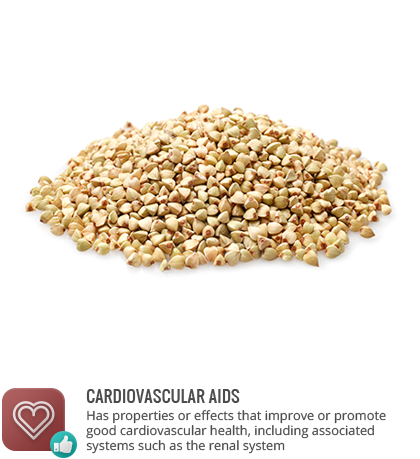Buckwheat
Definition
Buckwheat is the seed of the Fagopyrum esculentum plant. Buckwheat is most commonly sold as a hulled, pale green-yellow groat, or as the toasted version of this, kasha. Buckwheat flour has become popular as a gluten-free alternative, and is used in the production of soba noodles.
Health considerations
Buckwheat is high in fiber and protein and a source of B vitamins (excluding B12), iron, magnesium, phosphorus, potassium, zinc, copper, manganese, and selenium. Buckwheat is a source of antioxidants and flavonoids; roasting to form kasha reduces antioxidant levels. The protein quality of buckwheat has been reported as superior to common cereal grains, and can lower cholesterol levels.
Keep in mind
Buckwheat is unrelated to wheat and does not naturally contain gluten. Buckwheat groats can be eaten raw, or can be soaked and rinsed to produce a soft cereal with improved protein digestibility.
May be found in
Soba noodles, gluten-free foods, kasha, raw, granola, cereal, energy bars.
References
Self Nutrition Data
Journal of Agricultural and Food Chemistry
Cereal Chemistry
The Journal of Nutrition
Journal of Agricultural and Food Chemistry
Food Chemistry
Alternative Spellings and Names
Fagopyrum esculentum


